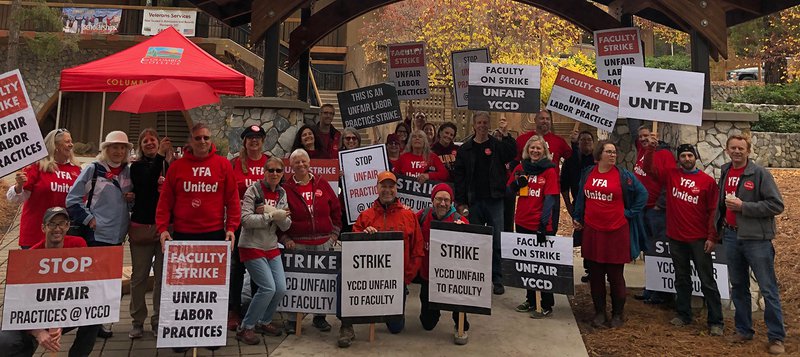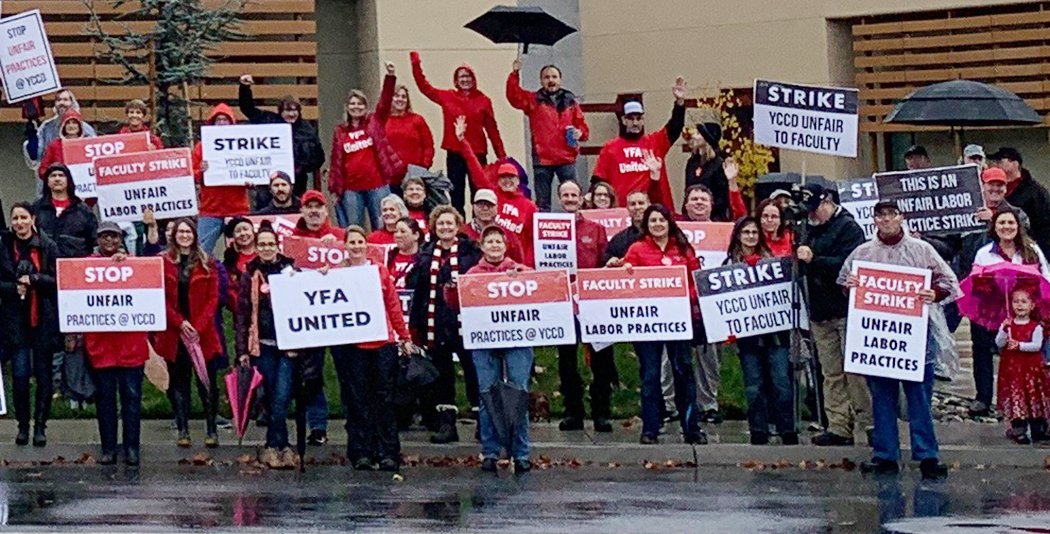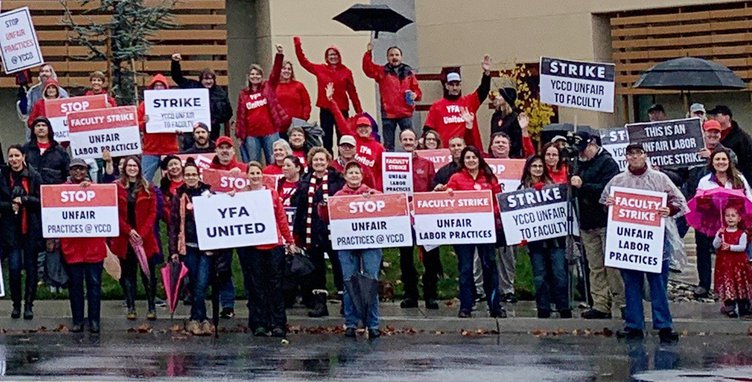Classes at Modesto Junior College came to a halt this week as members of the Yosemite Faculty Association went on strike, protesting “unfair labor practices” from the Yosemite Community College District after nearly three years of contract negotiations.
“At this point, we’re really fed up,” YFA President Jim Sahlmanat told the Journal in a phone call from the picket line on Wednesday. “We’ve been very patient, and this is a faculty that would never strike, that would never go on the line, and it’s taken such bad-faith bargaining tactics from the District to get us to leave the classroom.”
Along with about 40 faculty members at Columbia College in Sonora, around 380 MJC instructors participated in the two-day strike on Tuesday and Wednesday, cancelling 2,750 classes on both campuses — 2,600 at MJC and 160 at CC. Over 20,000 students were unable to attend their scheduled classes, but still had access to the campus’ computer labs and libraries to keep pace with their studies.

Despite the rain, Sahlmanat said that the numbers on the picket line totaled over half of the District’s entire faculty, with students joining the protest and community members offering support with honks, waves and even coffee deliveries.
“The District figured it could weather this two-day strike and then move on, but frankly the weather’s been a lot more cooperative than the YCCD,” Sahlmanat said. “We’re hoping that this strike finally gets people to recognize that if they bargain in good faith, maybe we can get a deal done and avoid a longer strike in January.”
A second strike after the holiday break in 2019 would last two weeks, Sahlmanat added, but the YFA is hoping an agreement with YCCD can be reached before then.
YFA and YCCD have been working on a new contract for close to three years, and in April 2018 the District delivered its last, best offer which was rejected by the union. The offer continued to demand unsustainable class size increases, YFA says, and an updated proposal of an eight percent pay raise over four years is “regressive.”
The raise would keep faculty at the bottom of a cohort including 10 similar college districts negotiated by YCCD and YFA in 2007 as part of a 10-year agreement. According to the union, faculty is currently 22 percent below the median of the group after 10 years of the union receiving less than a one percent raise on average.
“We know there’s no way they can write a 22 percent check right now, so we’ve offered what will work to get to that median, but they would rather ignore the cohort and eliminate it rather than honor the agreement they made to us before,” Sahlmanat said.
In a statement released ahead of the strike, YCCD said that YFA’s demands would leave the District “financially unstable” and that the YCCD Board and Administration has given its “best effort to avoid a strike.” They believe their last best offer is fair, as it proposes a salary schedule compression that would allow faculty members to attain higher salaries with fewer years of teaching service.
The issue of appropriate class size will be further reviewed in hopes that a “collaborative solution” can be discovered, YCCD said, and added that in addition to the pay raise offered, YFA members already enjoy a work year schedule of 8 ½ months, 100 percent District-paid medical benefits and 18 percent of their salary paid annually toward their retirement benefits.
Sahlmanat said that negotiations between YCCD and YFA are expected to pick back up after Dec. 6, when a fact-finding report from a September state mediation session between the two parties is released. If no agreement is reached, a second strike will be scheduled.
“We’re willing to be patient on however long it takes to get there as long as the timeline is reasonable, but they can’t just ignore us,” he said.





